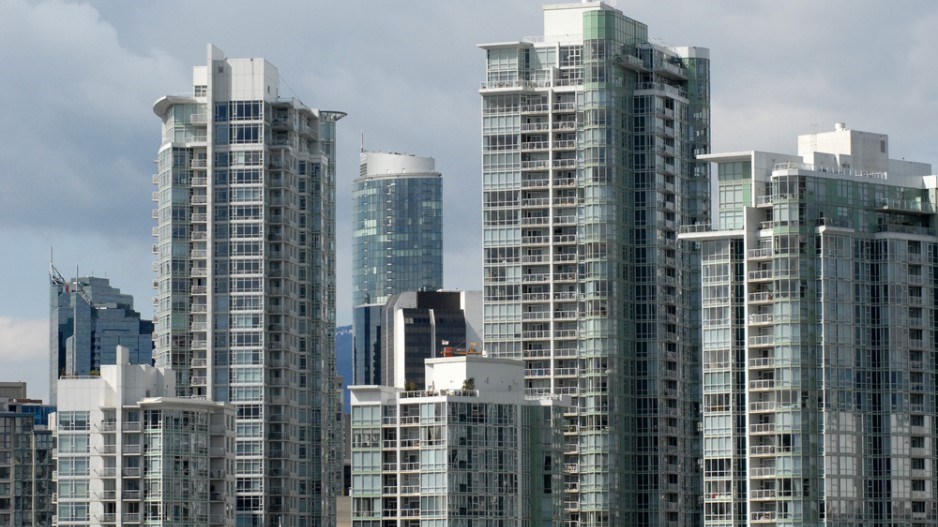B.C. led the country in economic growth last year and is poised to do the same in 2016. But some economists and politicians are questioning how rosy that picture is given the province’s reliance on real estate and the B.C. government’s stance on housing affordability.
“I worry about … the government’s reliance on real estate, as a means of keeping our economy strong,” said Carole James, NDP MLA for Victoria-Beacon Hill. “That’s not a long term plan.
“The amount of resources that are coming in from the property transfer tax, the jobs that are in place with the construction boom — those are things that are good for our economy but shouldn’t sustain our economy.”
B.C. has a relatively diverse economy, and the province has largely escaped the worst effects of the downturn in oil prices. In 2014, real estate and construction combined made up 25% of B.C.’s GDP (real estate was 18% and construction was 7%). In Alberta in 2014, mining and oil and gas comprised a similarly large chunk of GDP, at 26%.
Compared to other Canadian cities, Vancouver’s housing market is uniquely unbalanced when home prices are compared to median incomes, and the gap has only widened over the past year: the benchmark price for a detached home in Vancouver rose 20% in 2015, while apartments increased over 11%.
Urban areas of the province will benefit the most from the projected 2016 growth, but that growth is not being spread equally throughout the province, said Iglika Ivanova, senior economist with the Canadian Centre for Policy Alternatives: areas in the north and Interior are struggling because of the downturn in resources and are seeing rising unemployment and falling home prices.
The provincial government needs to do more to calm down the overheated Lower Mainland market, said Tom Davidoff, a professor of economics at UBC’s Sauder School of Business. Along with eight other colleagues, Davidoff recently published a proposal for a 1.5% property tax surcharge targeted towards property owners who don’t live in their homes or don’t pay income tax in Canada.

British Columbia gross domestic product by industry, 2014 | Statistics Canada
The government’s preferred response so far, a tax credit for first-time homebuyers for homes up to $500,000, is the opposite of what’s currently needed, he said. In an active market with a lot of demand and limited supply, that policy will drive up prices further.
“It’s fine to want to support home owners in B.C., but that’s not an affordability program,” he said. “Adding to demand helps home owners and, because it’s targeted, it helps some people looking for a house, but only people looking to buy. If you’re priced out of ownership and seeing rising rents, they’re actually taking money from you.”
The homebuyers’ credit has another risk: it encourages people who might not otherwise be able to afford a home to buy, and that could backfire.
“It's a possibility that prices will continue to rise forever, that might happen, but there's another scenario where prices fall 20/30/40% from where they are today,” he said. “Then 1000% of your net worth is in a single asset.”
Anecdotal accounts and some limited data analysis suggest that wealthy buyers from mainland China are contributing to the increases seen at the high end of the residential market and in some cases are investing heavily in multi-family properties that can be redeveloped. The true extent of the phenomenon is not known because Canada does not track data on foreign ownership.
But based on the trend that is happening in places like California, New York, Sydney and Hong Kong, in which wealthy people from emerging economies seek to stash money in real estate as a safe haven, British Columbia should be proactive about tracking and responding to the phenomenon, Davidoff said.
“I'd say in the long run it's a giant issue, I really do think so,” he said. “It's transforming.
“What I've come to realize when I think about this and analyze it is B.C.'s tax code and housing market are almost designed to be a haven for people who want to park capital and not mess around with not having a renter in their space.”
That’s because in Vancouver, rents are low compared to the worth of a house, and because Vancouver is a nice place to live and supply is limited, home prices are likely to keep rising.
“It doesn't cost you much to not have a tenant because a house gives you a rate of return in two ways: it gives you a dividend and it gives you a capital gain,” Davidoff said.
Compared to the United States, property taxes in Canada are low while income taxes are high, making Vancouver doubly attractive. The currently low Canadian dollar is also a factor.
“It's sort of a new phenomenon globally, but when you think about it we're ideally set up to delete the home part of housing,” he said.
While the government has so far been reluctant to consider a speculation tax, Davidoff said government staff have contacted him by email about his proposal this week.
@jenstden




